Flying has become one of the most restricted activities we do as travellers. The latest restriction has been to ensure mobile phones are kept charged, because if they’re not security officers might think they are Improvised Explosive Devices (IEDs). Here’s a look at how flying has changed since the golden age of the 1950s.
1950s: Not all luggage was checked 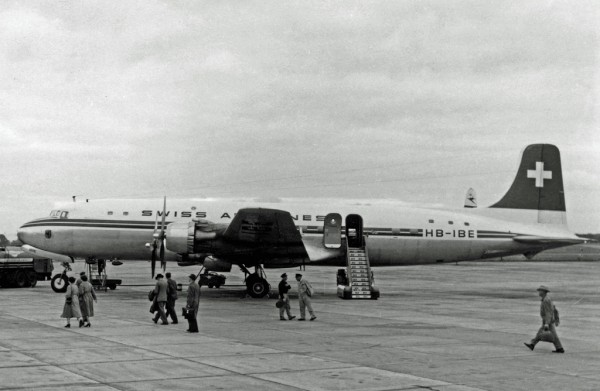
2014: Security includes baggages checks and body scans 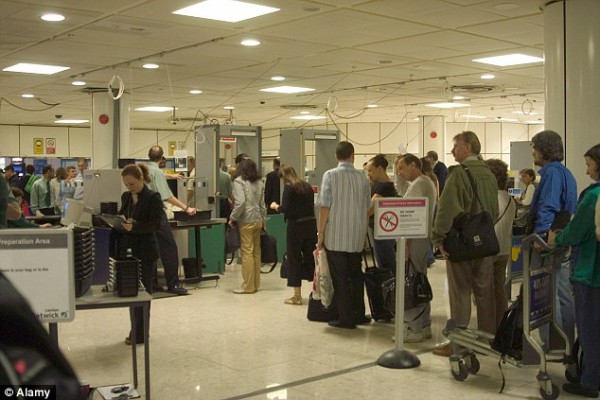
In the 1950s, men wore pristine suits and women regaled in their hats, gloves, and mini-skirts when flying. Smoking was allowed on-board and food wasn’t thrown at you in plastic containers, it was served on china dishes and with silver cutlery. (The Huffington Post)
When it came to security, there is no doubt we have the most rigorous security measures today. In the 1950s, we might look back with envy when security checks were non-existent, but a plane crash that killed almost 50 people in 1955 due to a bomb in a suitcase was the first sign to airlines that security measures were needed.
The perpetrator was discovered to be Jack Graham who had built a homemade bomb and packed it into his mother’s suitcase, who was travelling on the flight. It turned out that Jack was due to inherit his mother’s massive estate if she died.
1950s: Metal detectors were declared to be useless 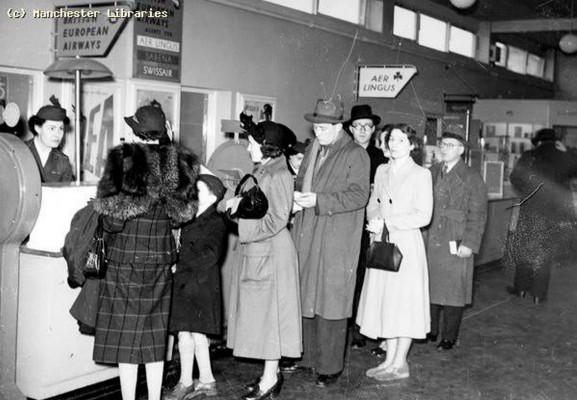
2014: You must declare ‘dangerous’ substances – even if that substance is a lipstick 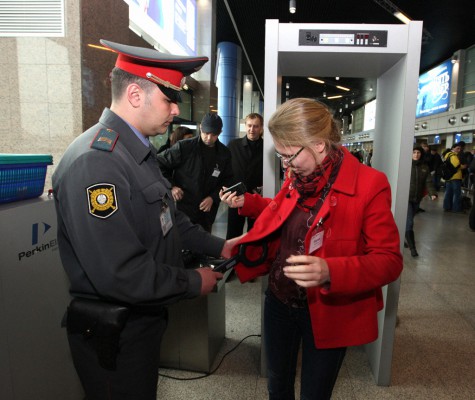
Interestingly, news reports at the time described the impracticalities of checking each and every piece of luggage, suggesting that it would be time consuming and that it would be an invasion of passengers’ privacy.
1950s: Fly from New York to London – for £1482 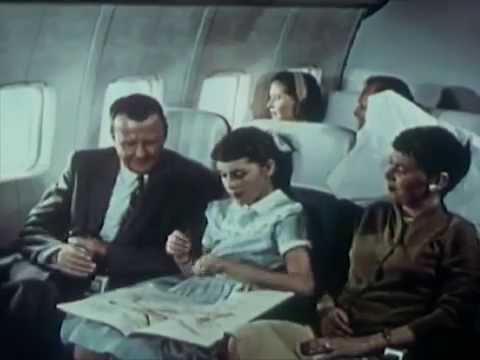
2014: Fly from New York to London – for £211 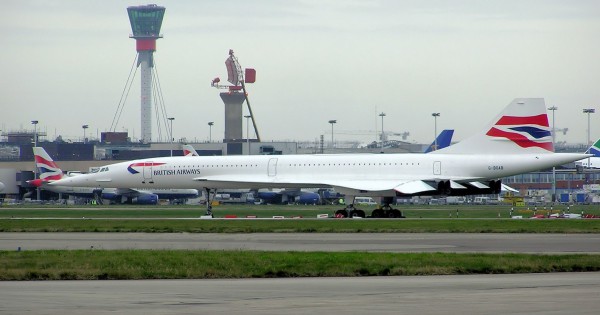
The cost of flights is one thing that’s played in our favour as the years have passed. In the 1950s a flight from New York to London cost around US$290, which, with inflation, is the equivalent of £1500 today. But since the 1970s when airlines were deregulated flight costs fell by more than 40%. Looking at an example today, a flight from New York to London can cost as little as £210 – around a sixth of the cost in the 1950s.
1950s: You are way more likely to die in a plane crash 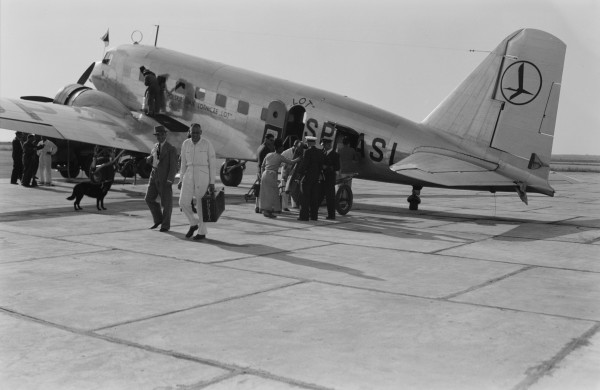
2014: You are pretty safe up there 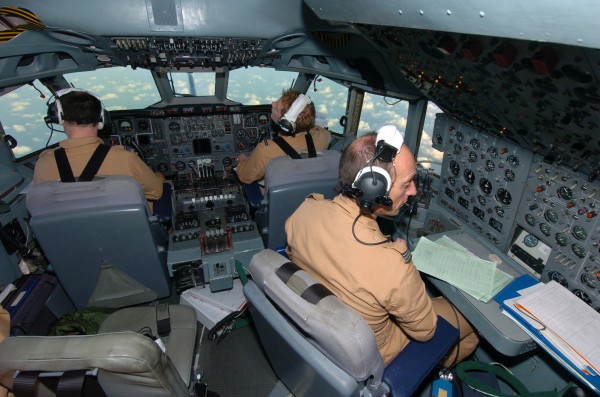
In terms of safety, today we’re in a much better position to survive flying than we were in the 1950s.
The aircraft were fitted with less technology and radar was not as effective as it is today. Collisions with other aircraft were common, and parts were known to drop off aircraft mid-flight. If there was bad weather, the chances of a crash or problem were significantly increased since pilots did not have the technology to help them fly with low visibility.
The death rate for flying was around five times higher in the 1950s than it is today. Flying is thought to be safer than driving a car or travelling by train.
1950s: Inflight entertainment = Postcards and Dining 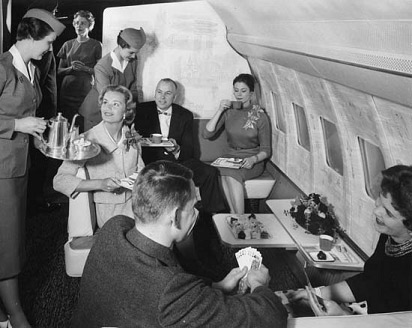
2014: Inflight entertainment = Dining – Trays of reheated gunk, In-flight Wi-Fi, digital shopping and maps
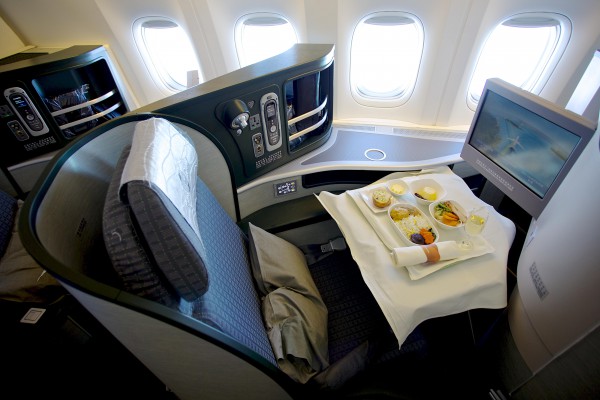
In flight entertainment has changed beyond recognition. Sixty years ago it was non-existent. Today it is hard to choose what to do, from movies, TV shows, games, music and now new planes are being fitted with Wi-Fi internet technology so you can surf the net while you fly.